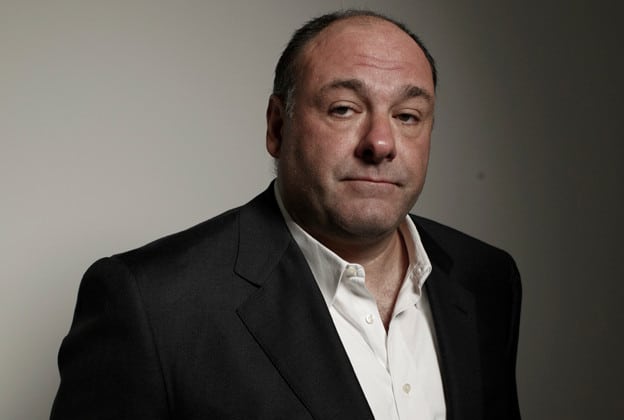Blog
Estate Taxes, Planning and Inheriting Property
Estate Taxes, Planning and Inheriting Property
Once you are done dealing with a behemoth of paperwork, and tax season is over, it is time to look ahead to ensure a better tax year in the future. With the tax season behind us, now is the perfect time to consider your estate plan.
I read this article in a legal journal and HAD to share it.
What Do You Have in Common with Tony Soprano?
By Michael L. Ferrin | April 17, 2014
James Gandolfini, the actor who played Tony Soprano in the popular television series ‘The Sopranos’, died of a heart attack while on vacation in Italy. Since then, countless articles have been written by estate planning attorneys and others analyzing, criticizing, and dissecting the lessons to be learned from his estate plan. Most people do not have a potential $30 million estate tax bill due to poor estate planning (which could be seen by some as a nice problem to have), but many of the other problems with Mr. Gandolfini’s estate plan are common in most estate plans.
Mr. Gandolfini’s personal choices, as well as his estate and tax planning choices have been widely criticized. For example, it is reported that he left the bulk of his estate to his children, sisters and friends rather than his spouse. By holding the assets in trust for the benefit of his wife under an ascertainable standard and then having the balance go to the children on her death, he could have saved significant estate taxes. Perhaps even more problematic is that the children receive their inheritance at age 21. His 9-month old daughter will receive 20% of what is estimated to be a $70 million estate outright at age 21. Using a simple trust, this inheritance could have been protected and managed for her throughout her lifetime, where it would be protected from creditors, shysters, con-men, divorce, and from poor choices that are inevitable when a young person is handed a pile of money before she is adequately prepared to handle it.
Mr. Gandolfini owned real property in Italy. Real property in multiple states and foreign countries can result in multiple costly probates if not properly addressed in an estate plan. Some of his property was vacation property. Vacation properties such as condos and family cabins have unique issues that need to be addressed before they are passed to the next generation. Failure to plan can result in loss of the property or hard feelings between family members.
How does the world know so much about Mr. Gandolfini’s estate plan? It really isn’t any of our business, is it? The answer is simple. Mr. Gandolfini chose to use a Will rather than a trust. A prominent estate planning attorney stated it this way; “But, the hardest choice to understand is Gandolfini’s choice to use a Will rather than a trust as his primary estate planning vehicle. By using a Will, he subjected his estate to the process of probate. Probate delays and expense vary by jurisdiction. But, in all jurisdictions, probate is a public proceeding. It is difficult to understand why he would choose to air his finances and personal choices in public. It is even more difficult to understand why he would expose his family to this. If he had used a trust rather than a Will, we would not know to whom he had left his fortune.” Steven Hartnett, Associate Director, American Academy of Estate Planning Attorneys.
This type of bombshell happens all the time, because people tend to put off important matters until later. This also happened to Prince, Aretha Franklin, Michael Jackson, Bob Marley, Sonny Bono, and many more!
Perhaps the most important lesson to learn from this is applicable to all of us – don’t procrastinate. Mr. Gandolfini died at age 51 while on vacation. He probably assumed he had many good years ahead of him to get his planning in place. It is human nature to put off setting up a trust or updating an estate plan, but this can result in unfortunate situations and problems for the loved ones we leave behind.
Now is the time to consider your estate plans:
- No estate plan? Establish one ASAP!
If you do not create an estate plan, the State where you reside determines allocation of inheritance. This can be a problem if there are children from a current or prior marriage. A Will or Trust sets the rules of who will inherit what, and who will take of whom in the event of a death or disaster.
- Do not ignore estate planning just because your estate is under the estate tax threshold.
The rules for estate exemption vary year to year, and depends on which state you reside in. Many people feel that if they don’t have many assets, there is no need to set up an estate plan. But that is FAR from true! Have a plan in place and review and update annually. Things such as financial situation or heirs could change.
- Create Will or Trust.
This document can specify heirs, allocation of assets, denote representative or guardian of you and/or your minor children. Each one has advantages and disadvantages. There is NOT a one size fits all answer to which is best for each person or family. There are many reasons to consider which works best: Privacy, timing or inheritances, costs, maintaining family harmony, financial position for minors, protecting step family members, asset protection, probate avoidance are but a few of the many issues that can be addressed by choosing the appropriate estate planning vehicle (Will or Trust).
- Medical POA and/or Living Will
Provides for your wishes to be carried out if you cannot communicate them at the time.
- Legal and Financial POA’s
Gives permission to those you trust to carry out your desires if you cannot communicate with them at the time.
- Updated Beneficiary designation for Insurance and Retirement Assets
Ensures heirs receive monies quickly, without hassle or delay. (Must change after divorce)
Here are a few things to keep in mind when discussing a Trust:
- Some Trusts state that upon the death of either one of you, your assets are to be placed into two separate Trusts. This is typical of most A/B Trusts, Living Trusts, Revocable Trusts, and Family Trusts. This means that when one of you passes there is an A Trust and a B Trust established. The A Trust is the Survivor’s Trust and the B Trust is the Decedent’s Trust. Frequently people believe if they have a small estate and if there are children or grandchildren involved, they do not have to worry about creating two separate trusts upon the death of their spouse; even though the Trust documents state this should be done. It is my advice and recommendation that you DO create two separate trusts if your trust language tells you to do so. Especially so with second marriages and blended families.
- There is a federal estate tax exemption in place if a Trust currently exceeds $11.4 million. (The amount could change each year, contact our office for current exemption amounts). When a person passes, they can shift their unused estate exemption to their spouse. That spouse will have the ability to shelter over $22.8 million (be sure to find out the current exemption amount for this year by calling our office), to not pay taxes for their estate or by allowing their heirs to inherit money tax free. We encourage that an Estate Tax Return be prepared when a spouse passes, regardless of the size of their estate. Wealthy clients understand the need for preparing these returns while the “average” family does not feel that since they do not have a large estate, they do not need to file the return. This omission can impact tax issues with a subsequent marriage, if that results in marrying into a large estate.
- Make sure your Trust review is less than 5 years old. If you do not have a Trust in place, I strongly recommend having one created, especially if you are married, own a home, or have children. A trust is a great way to keep the transfer of assets private, to prevent family feuds, and to allow for assets to be transferred quickly at no cost, among other reasons. The cost of preparing a Trust may also be a tax deduction.
Property and Assets
Some taxpayers believe that when they are older it is safer to have their beneficiaries or heirs listed as joint owners on their property, checking accounts, savings accounts, automobiles and houses. The parents think they are doing the children a favor and making things easier by having their children named as joint owners. In fact, this could cause problems when the parent passes on.
If a gift is made prior to the death of a parent, the basis of the inheritance, is what the parent paid for it. For instance, if the parent paid $100,000 for a home and the child was put on the deed with the parent, when the parent passes away the child’s basis for the house is $100,000. This means if they sell the house for $200,000, they will have a gain to pay tax on.
Consider not putting the children on the accounts or deeds. Instead, use a Power of Attorney that allows them authority to manage the property in the event of incapacity.
Then prepare a Will or Trust and designate who will inherit the assets upon the parent’s death. This would allow the children to receive the property at a stepped-up basis (fair market value or what it can sell for); which means little or no tax would be paid once the child sells of the inherited property.
Finally, if you put children’s names on property and those children go through a divorce or lawsuit, it is possible that your property could also be lost or disposed of because the courts will assume the property is owned jointly by the parent and the child. Not only does putting the children’s names on property hurt the children tax-wise, it could hurt the parent both financially and legally, if there is any action taken against the children before the parent passes away.
Related Blog Posts
Top Ten Tips to Help You Choose a Tax Professional
Learn how to pass on more of your wealth to your heirs and pay less to the government before it's too late! Click here...Address & Map(602) 264 - 9331CLIENT PORTALAddress & Map(602) 264-9331[DISPLAY_ULTIMATE_SOCIAL_ICONS] Choose wisely when you intend...
Tax Tips for the Homeowner and Vacation Home Rentals
Learn how to pass on more of your wealth to your heirs and pay less to the government before it's too late! Click here...Address & Map(602) 264 - 9331CLIENT PORTALAddress & Map(602) 264-9331[DISPLAY_ULTIMATE_SOCIAL_ICONS] Who isn’t excited about a new home?...
Small Business Expenses that save Taxes
Learn how to pass on more of your wealth to your heirs and pay less to the government before it's too late! Click here...Address & Map(602) 264 - 9331CLIENT PORTALAddress & Map(602) 264-9331[DISPLAY_ULTIMATE_SOCIAL_ICONS] When we include our tax...
Do You Owe The IRS?
Learn 5 Secrets The IRS Doesn't Want You To Know.
Click on the button below to get FREE access to this exclusive content.
Get Expert Tax Advice from an expert
Mr. Hockensmith has been a guest newscaster for national and local TV stations in Phoenix since 1995, broadcasting financial and tax topics to the general pubic. He has written tax and accounting articles for both national and local newspapers and professional journals. He has been a public speaker nationally and locally on tax, accounting, financial planning and economics since 1992. He was a Disaster Reservist at the Federal Emergency Management Agency, for many years after his military service. He served as a Colonel with the US Army, retiring from military service after 36 years in 2008. Early in his accounting career, he was a Accountant and Consultant with Arthur Andersen CPA’s and Ernst & Young CPA’s.










